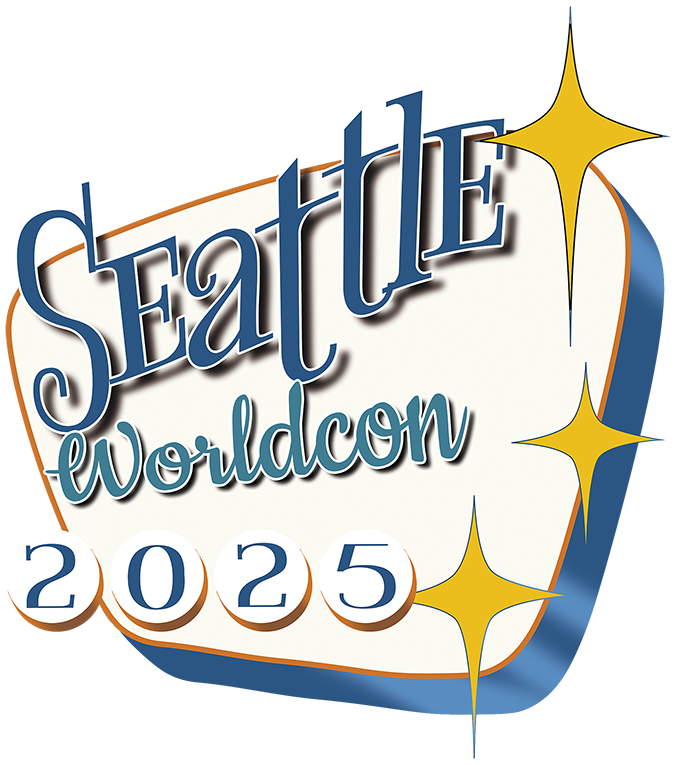Fantastic Fiction
In the Fantastic Fiction column, a distinguished cadre of fan writers will take you back to the 1961-1962 era of the first Seattle Worldcon and Century 21 Exposition, also known as the Seattle World’s Fair, events that cemented Seattle’s position as a global center for futurism and technological innovation. We hope immersion in the speculative fiction dreams and influences of the era will inspire you to make something—a story, costume, poem, argument, essay, panel idea, heart wish, or short film—to bring to our Worldcon.
Fantastic Fiction: Washingtonian Influences in Frank Herbert’s Duniverse
Authors write what they know, and Frank Herbert was a voracious reader and lifelong learner, so naturally many of the things he explored found their way into his works. If one looks closely at the Duniverse, as seen in Frank Herbert’s Dune novels, there’s plenty of Washingtonian influences to be found in the Known Universe.
The World Is Everything: Hothouse by Brian Aldiss
Published in 1962, Hothouse by Brian Aldiss has elicited some pretty strong opinions in its time. Love it or hate it, the book presents a fascinating (although highly improbable) future Earth in which humanity is a trivial lifeform among many (and certainly less interesting than most) and where everything is food!
Fantastic Fiction: Return of the Body-Hopping Supervillain: The Thousand Eyes of Dr. Mabuse
In the late 1950s and early 1960s, West Germany experienced a boom of crime movies featuring mysterious masterminds, outlandish plots, and bizarre murder methods, shot in atmospheric black and white and frequently harkening back to the expressionist cinema of the silent era. The most interesting of these were the Dr. Mabuse films, based on a supervillain introduced during Germany’s Weimar Republic.
Fantastic Fiction: The Strugatsky Brothers in 1962
Prolific and clever at getting by the Soviet censors, the Strugatsky brothers brought us fascinating tales of alien intelligences guiding Earth’s evolution, time travel, space exploration, and much more. Arkady Strugatsky, a technical translator and editor, and his brother Boris, a computer mathematician at Pulkovo Astronomical Observatory, are often regarded as the greatest Russian science fiction authors of the 20th century.
Fantastic Fiction: Resistance
In my teens I was profoundly affected by a small number of books that I read. As a result of reading them I became intensely interested in the politics of pacifism and the strategies of conflict resolution and resistance.
Fantastic Fiction: Science Fiction From Beyond the Iron Curtain: The Silent Star
In 1960, when the Cold War was at its height, a remarkable science fiction film called The Silent Star was released in East Germany. It not only featured an international and multiracial crew on the first mission to Venus, but it also demonstrated that despite ideological differences, the East and West shared the same fears.
Fantastic Fiction: Jorge Luis Borges in 1962
When Anglophone readers think of “magical realism,” they generally think of Gabriel García Márquez, Jorge Luis Borges, and other practitioners of this subgenre in Latin America during the mid-20th century. Borges, known for his brain-twisting, reality-bending stories, published two texts in English in 1962: Ficciones and Labyrinths.
Fantastic Fiction: Joanna Russ
I am partial. I truly believe that Joanna Russ is one of the greatest writers that the science fiction field has ever produced, and from 1977–1991 she was a professor at the University of Washington in Seattle.
Fantastic Fiction: Classic Science Fiction Films of the Early 1960s
The early 1960s were a fascinating time for science fiction cinema, blending Cold War anxieties, space-age optimism, and philosophical explorations of technology and humanity. Five standout sci-fi films from 1960 to 1965 left a lasting impact on the genre: The Time Machine (1960), The Day the Earth Caught Fire (1961), The Day of the Triffids (1962), The First Men in the Moon (1964), The Absent-Minded Professor (1961), and La Jetée (1962).


